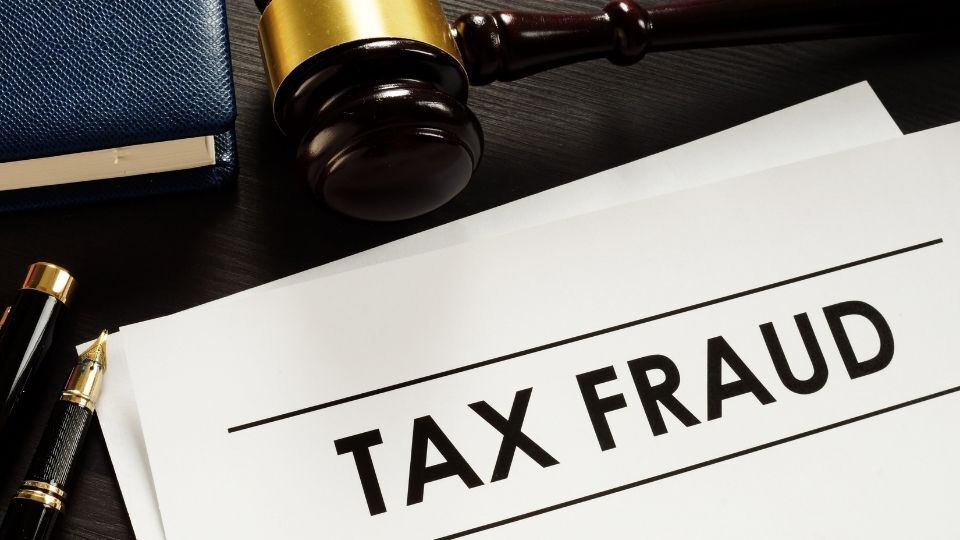Tax fraud is not a grey area—it’s a serious matter under UK law. Whether it’s deliberate falsification of records, failure to report income, or participation in complex schemes to avoid liability, tax fraud penalties in the UK are severe. With HMRC (Her Majesty’s Revenue and Customs) increasing its enforcement powers and expanding digital surveillance, the cost of getting caught is higher than ever.
This guide breaks down the full range of consequences—financial, legal, and reputational—that come with tax fraud. We’ll cover both civil penalties and legal prosecutions, explain how HMRC investigates, and detail what businesses and individuals need to understand about their rights and liabilities under UK tax evasion laws.
In recent years, HMRC has ramped up efforts against tax avoidance and evasion, using everything from data-sharing agreements with overseas authorities to AI-driven anomaly detection. If you think tax fraud is a low-risk offence, think again.
Understanding Tax Fraud in the UK
To understand tax fraud penalties in the UK, we need to start with what actually constitutes tax fraud. In simple terms, tax fraud involves deliberate dishonesty in relation to tax affairs. It can take many forms, from under-reporting income to creating fake invoices, and it applies to both individuals and businesses.
What is Tax Fraud?
HMRC defines tax fraud as any intentional act to cheat the tax system. This includes:
- Failing to declare taxable income or gains
- Knowingly submitting false tax returns
- Using fake documents to reduce tax liabilities
- Misrepresenting employment status (e.g., falsely claiming to be self-employed)
- Participating in tax avoidance schemes that are deemed unlawful
Tax fraud differs from simple mistakes or negligent errors. HMRC distinguishes between:
- Negligence: where someone makes a careless mistake
- Deliberate non-compliance: where actions are knowingly false or misleading
- Deliberate and concealed: where fraud is not only intentional but also hidden through deceptive practices
Types of Tax Fraud in the UK
There are several categories of tax fraud that can lead to severe tax fraud penalties in the UK, including:
- Income Tax Fraud: Under-declaring earnings or failing to file returns
- VAT Fraud: Making false VAT refund claims or missing trader fraud (carousel fraud)
- Corporation Tax Fraud: Manipulating company accounts or expenses
- Payroll Fraud: Falsifying PAYE records or not declaring employee wages
- Offshore Tax Evasion: Hiding income or assets in undisclosed offshore accounts
Legal Framework Governing Tax Fraud
UK tax fraud is governed by multiple legal provisions, including:
- Taxes Management Act 1970
- Fraud Act 2006
- Finance Acts (various years)
- Criminal Finances Act 2017
- Proceeds of Crime Act 2002 (POCA)
These laws provide HMRC with a broad set of powers to investigate, prosecute, and recover funds from individuals or entities suspected of tax fraud. Under the Fraud Act 2006, fraud by false representation, failure to disclose, or abuse of position can all lead to prosecution.
How HMRC Identifies Tax Fraud
HMRC uses a mix of traditional audits and advanced digital tools to detect anomalies:
- Cross-referencing income with bank data and employer submissions
- Real-time alerts via the Connect system (a powerful data analytics tool)
- Intelligence from whistleblowers and tip-offs
- International data-sharing under the Common Reporting Standard (CRS)
Once suspicion arises, HMRC may launch either a civil investigation under Code of Practice 9 (COP9) or a proper investigation.
Civil vs Penalties for Tax Fraud in the UK
When HMRC suspects tax fraud, it decides whether to pursue the case civilly or legally. The route chosen has a major impact on the penalties imposed, the legal process involved, and the lasting consequences for the accused. Understanding the difference between civil and legal tax fraud penalties in the UK is essential for individuals and businesses facing scrutiny.
Civil Tax Fraud Penalties
Civil investigations are often used when HMRC believes the fraud can be resolved through financial penalties and recovery rather than prosecution. Civil penalties aim to recover unpaid tax along with a financial punishment based on behaviour.
HMRC classifies behaviour into:
- Careless
- Deliberate
- Deliberate and concealed
Each carries different penalty ranges, calculated as a percentage of the tax owed:
| Behaviour | Domestic Tax | Offshore Tax (non-disclosure) |
| Careless | 0% – 30% | 0% – 45% |
| Deliberate | 20% – 70% | 30% – 100% |
| Deliberate & Concealed | 30% – 100% | 50% – 200% |
Penalties can be mitigated if the taxpayer:
- Discloses voluntarily
- Cooperates fully
- Provides helpful and timely information
Civil cases typically follow one of two routes:
- Code of Practice 8 (COP8): For suspected tax avoidance (not necessarily fraud)
- Code of Practice 9 (COP9): For suspected serious fraud, offering the Contractual Disclosure Facility (CDF)
Under COP9, the taxpayer can admit fraud in exchange for immunity from legal prosecution, provided full disclosure is made.
legal Tax Fraud Penalties
HMRC reserves legal investigations for the most serious or high-profile cases, especially where:
- The fraud is large-scale or organised
- There’s clear evidence of dishonesty
- The case would deter others
If found guilty, the accused can face:
- Unlimited fines
- Repayment of all tax plus interest
- Confiscation of assets under POCA
- Prison sentences of up to 7 years (in some cases even more if conspiracy is involved)
- Director disqualification
- Public naming and shaming
High-profile examples often involve accountants, company directors, or public officials. Once convicted, the individual or business faces long-lasting reputational damage and difficulties obtaining future credit or professional licences.
HMRC’s Role and Discretion
HMRC has full discretion in deciding the route it takes. In some cases, they may start with a civil process but escalate to a legal one if dishonesty is discovered during the investigation. The authority’s goal is to recover lost revenue, but also to set precedents that reinforce the seriousness of tax fraud in the UK.
HMRC Investigation Process: From Suspicion to Prosecution

(In the image an investigator can be seen conducting a tax fraud investigation)
Understanding how HMRC conducts tax fraud investigations is crucial for grasping the full scope of tax fraud penalties in the UK. Investigations are structured, evidence-led, and often protracted. They can begin quietly and escalate quickly, with significant legal consequences depending on what is uncovered.
How Investigations Are Triggered
Investigations typically begin due to:
- Discrepancies in tax returns
- Third-party reports or whistleblowing
- Data flagged by HMRC’s Connect system
- Information from banks or foreign tax authorities
- Random or targeted audits
HMRC’s Connect system analyses billions of data points from government databases, bank records, property sales, social media, and even online marketplaces. If your declared income doesn’t match your lifestyle, this system will likely notice.
Types of HMRC Investigations
1. Civil Investigations
Usually starts with a letter requesting clarification or documentation. If HMRC suspects deliberate fraud, it may proceed under:
- Code of Practice 8 (COP8) – Tax avoidance or complex arrangements
- Code of Practice 9 (COP9) – Suspected serious fraud with option for voluntary disclosure (Contractual Disclosure Facility)
2. legal Investigations
Used when:
- There’s evidence of deliberate dishonesty
- The case could serve as a deterrent
- There’s a public interest in prosecution
These involve formal interviews under caution (PACE interviews), search warrants, and possible arrests. The aim is to gather evidence that supports legal charges.
Key Stages in an HMRC Investigation
- Initial Review – HMRC identifies a risk or irregularity
- Information Gathering – Requesting documents, checking returns, speaking with accountants or employees
- Interviews – May be informal (civil) or formal under caution (legal)
- Assessment – Determining whether there’s fraud and whether to recover unpaid tax, impose penalties, or prosecute
- Closure or Escalation – Either ends with financial settlement or escalates to court
Duration of Investigations
The process can take:
- 6–12 months for simple civil cases
- 12–36 months or more for complex frauds or legal cases
Delays often arise due to the volume of data, legal challenges, or lack of cooperation.
Your Rights During an HMRC Investigation
Taxpayers have legal rights, including:
- The right to professional representation
- The right not to self-incriminate
- The right to challenge decisions via tribunals
- The right to make a voluntary disclosure
It is always advisable to seek specialist legal or tax advice the moment HMRC contacts you. Anything you say or provide can shape the outcome of the case.
Real-World Examples of Tax Fraud Penalties in the UK
Theory is one thing. Real cases are another. The UK courts have handed down severe tax fraud penalties in recent years, sending a clear message: HMRC will pursue and punish dishonest taxpayers. Below are several real-world examples that illustrate how tax fraud is treated across different scenarios.
Case Study 1: Accountant Jailed for £6.9 Million Tax Fraud
In 2022, a chartered accountant in London was sentenced to 9 years in prison for submitting false VAT and PAYE claims on behalf of dozens of fictitious companies. The fraud, totalling nearly £7 million, involved faked invoices, shell entities, and misrepresentation of employment status.
Outcome:
- £6.9 million fraud
- 9-year prison sentence
- Confiscation order for personal assets
- Disqualification from acting as a director for 15 years
This case underlines that professional status offers no shield. HMRC prioritises systemic abuse of tax systems for legal prosecution.
Case Study 2: Landlord Fined for Undeclared Rental Income
A Midlands-based landlord failed to report rental income for six properties over a five-year period. After a tip-off from a tenant, HMRC launched a civil COP9 investigation. The landlord admitted wrongdoing under the Contractual Disclosure Facility, avoiding prosecution.
Outcome:
- £250,000 in unpaid tax and interest
- £180,000 penalty (72%)
- Avoided legal charges due to full disclosure
This case highlights how disclosure and cooperation can significantly reduce penalties, even in cases involving deliberate concealment.
Key Takeaways from Case Law
- HMRC prosecutes both individuals and companies, regardless of size or profession
- Full and early disclosure can help avoid prison but not financial penalties
- Digital and third-party data are routinely used as evidence
- Asset recovery powers under the Proceeds of Crime Act are broadly applied
These cases drive home the risks. Tax fraud penalties in the UK are not abstract—they carry life-altering consequences, especially when dishonesty is proven.
Defending Against Allegations of Tax Fraud
Being accused of tax fraud is a serious matter. Whether it leads to civil penalties or legal charges, the way you respond can significantly impact the outcome. Understanding your legal position, securing professional help, and avoiding critical errors are essential steps when facing allegations. While tax fraud penalties in the UK can be harsh, there are legitimate defences that may reduce or eliminate liability.
Common Defences in Tax Fraud Cases
The specifics of each case determine what defence strategy may be used. However, several legal arguments are commonly raised against allegations of tax fraud:
1. Lack of Intent
For tax fraud, intent must be proven beyond reasonable doubt. If the taxpayer can demonstrate that the error was accidental or due to negligence rather than deliberate deception, liability may not apply—though civil penalties could still be imposed.
2. Reliance on Professional Advice
If a taxpayer acted based on the guidance of a qualified tax advisor or accountant, they may argue that they lacked the knowledge or intent to commit fraud. This defence is stronger when:
- The advice was sought in good faith
- The advisor was properly qualified
- Full disclosure was made to the advisor
3. Mistake of Fact
In some cases, a genuine misunderstanding of the law or circumstances may be a valid defence. For example, incorrectly believing certain income was non-taxable.
4. Procedural Errors by HMRC
If HMRC failed to follow proper procedures—such as failing to provide lawful notice, violating search warrant conditions, or improperly collecting evidence—a case may be challenged on procedural grounds.
5. Disclosure Under COP9
If the taxpayer is under civil investigation for serious fraud (COP9), voluntarily disclosing the fraud under the Contractual Disclosure Facility (CDF) can provide immunity from prosecution.
The Role of Legal and Tax Professionals
Engaging a qualified solicitor for HMRC tax investigation process or forensic accountant early in the process is critical. They can:
- Liaise directly with HMRC on your behalf
- Review the strength of the evidence against you
- Challenge unlawful demands or assessments
- Assist with voluntary disclosures or settlement negotiations
Do not attempt to handle allegations of tax fraud alone. The legal and financial stakes are high.
What Not to Do if You’re Accused
- Don’t ignore HMRC correspondence – Silence may escalate the matter.
- Don’t destroy records – It may be seen as evidence of concealment.
- Don’t make partial admissions – What seems like cooperation can be used against you.
- Don’t assume it will go away – Even minor issues can evolve into larger investigations.
Immediate, informed action is your best defence.
Alternative Resolutions and Settlements
In civil cases, HMRC may accept a financial settlement that includes:
- Payment of unpaid tax
- Interest
- A reduced penalty based on cooperation
Settlement does not always avoid reputational consequences (such as being named by HMRC), but it can significantly reduce long-term damage.
In cases, plea bargaining or reduced sentencing may be possible if the defendant cooperates or enters an early guilty plea. However, this must be carefully negotiated through legal counsel.
Long-Term Consequences of Tax Fraud in the UK
The immediate impact of a tax fraud investigation—fines, penalties, or even a prison sentence—is just the beginning. The long-term consequences of tax fraud penalties in the UK can follow individuals and businesses for years, affecting everything from credit access to public trust. Even when charges are avoided, the damage to reputation and credibility can be lasting and difficult to reverse.
1. Reputational Damage
Tax fraud allegations are often public, especially in high-profile or such cases. HMRC publishes the names of deliberate tax defaulters under its Naming and Shaming policy when the penalty exceeds £25,000. Local and national media may also report on convictions.
Consequences include:
- Loss of trust among customers, suppliers, and investors
- Termination of professional accreditations or licences
- Inability to secure government contracts
- Long-lasting online presence of fraud allegations
For professionals—accountants, solicitors, directors—the reputational fallout can be career-ending.
2. Impact on Business Operations
For companies, a tax fraud conviction or even an open investigation can:
- Trigger audits across multiple departments
- Lead to regulatory scrutiny from other bodies (e.g. FCA)
- Scare off potential investors or buyers
- Result in frozen accounts or asset seizures
- Interrupt cash flow and vendor relationships
In some cases, companies may be struck off, dissolved, or forced into administration if liabilities exceed operational capability.
3. Credit and Financing Restrictions
Individuals and companies with tax fraud records may find it extremely difficult to:
- Secure bank loans or business financing
- Qualify for mortgages or credit cards
- Pass due diligence for investment rounds or acquisitions
Many lenders consider tax non-compliance a red flag, particularly in regulated industries like finance, construction, and real estate.
4. Ineligibility for Certain Roles
Conviction for a legal tax offence can result in:
- Disqualification as a company director (under the Company Directors Disqualification Act 1986)
- Bans from holding certain regulated positions in sectors like finance, law, and public service
- Revocation of professional designations (e.g. FCA, ACCA, ICAEW memberships)
5. Ongoing Scrutiny from HMRC
After a fraud finding, taxpayers are often subject to:
- Annual or biannual reviews
- Increased likelihood of future investigations
- Tighter deadlines and compliance checks
- Requirement to disclose additional details in returns
Trust with HMRC is not quickly rebuilt. Any errors made after a finding of fraud are likely to be judged more harshly and lead to higher penalties.
6. Family and Personal Impacts
The emotional and financial strain of a tax fraud investigation can deeply affect families:
- Legal costs may erode savings or assets
- Public exposure can damage family reputation
- Prison sentences disrupt family structures and income
It’s not just a financial issue—it’s personal, social, and long-term.
Frequently Asked Questions
What are the main tax fraud penalties in the UK?
The tax fraud penalties in the UK range from civil fines to legal prosecutions. Civil penalties typically involve paying back the full tax owed, interest, and a penalty that can be up to 100% (or 200% for offshore tax fraud). legal penalties can include unlimited fines, asset confiscation, and prison sentences of up to 7 years. HMRC determines the route based on the severity and intent behind the fraud.
Can you go to jail for tax fraud in the UK?
Yes. One of the most serious tax fraud penalties in the UK is imprisonment. If HMRC pursues a case and proves deliberate fraud beyond reasonable doubt, the offender can face up to 7 years in prison, or more in cases involving conspiracy or large-scale evasion.
What’s the difference between tax evasion and tax avoidance in the UK?
Tax avoidance uses legal methods to reduce tax liabilities, though HMRC may still challenge aggressive schemes. Tax evasion, however, is illegal and involves deliberate deception. Only tax evasion attracts charges and the full spectrum of tax fraud penalties in the UK.
How does HMRC decide between civil and penalties?
HMRC assesses the nature of the misconduct. If fraud is deliberate, organised, or high-profile, legal prosecution is likely. In less serious or first-time cases, HMRC may opt for civil penalties. However, both routes can result in significant tax fraud penalties in the UK, including financial ruin or loss of business.
What is the Contractual Disclosure Facility (CDF)?
The CDF is a mechanism under Code of Practice 9 (COP9) that allows individuals to admit to serious tax fraud in return for protection from prosecution. If full disclosure is made, HMRC will deal with the matter civilly instead of legally—though substantial tax fraud penalties in the UK still apply, including financial settlement and naming on the defaulters’ list.
How long does HMRC have to investigate tax fraud?
HMRC can investigate up to 20 years back in cases of deliberate fraud. For careless errors, the window is up to 6 years, and for innocent mistakes, 4 years. This long reach is part of why tax fraud penalties in the UK can be so devastating—they often involve many years’ worth of unpaid taxes.
Can HMRC seize assets for tax fraud?
Yes. Under the Proceeds of Crime Act 2002, HMRC can freeze and confiscate assets during and after an investigation. These include bank accounts, property, vehicles, and business assets. Asset seizures are one of the most aggressive tax fraud penalties in the UK, and they often follow a legal conviction.
Will I be named publicly if I commit tax fraud?
Possibly. HMRC publishes a list of deliberate tax defaulters on its website, including names, amounts of tax evaded, and penalties. This is part of the government’s deterrence strategy and is among the reputational tax fraud penalties UK residents must consider seriously.
Is voluntary disclosure still an option once HMRC has contacted me?
HMRC Voluntary disclosure is most effective before HMRC contacts you. If disclosure is made after HMRC begins an investigation, the penalties may be higher and legal prosecution is still a possibility. However, full cooperation and disclosure can reduce tax fraud penalties in the UK, even once the process is underway.
Do penalties differ for offshore tax fraud?
Yes. Offshore tax fraud carries harsher penalties, sometimes up to 200% of the unpaid tax. This reflects HMRC’s stance on international non-compliance and the difficulty in investigating hidden overseas income. Offshore offences also tend to attract more severe tax fraud penalties UK laws can impose.
What should I do if I’m under investigation for tax fraud?
Seek legal advice immediately. Do not respond to HMRC without a qualified tax fraud solicitor or specialist advisor. The earlier you act, the more likely you are to minimise tax fraud penalties in the UK, whether through cooperation, disclosure, or legal challenge.
Need Help Navigating a Tax Issue?
If you’re under investigation, suspect an error in your tax affairs, or simply want to ensure full compliance, don’t wait until HMRC knocks on your door. The Taxcom offers strategic advice, representation, and confidential support to help you manage risk and protect your future.
Your defence starts with a conversation. Contact The Taxcom today
Table of Content

Our Content Writing Team boasts a proven track record of crafting engaging and impactful content that drives success and achieves results.







